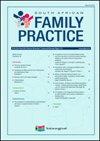社会责任挑战与社区服务康复治疗师的建议
IF 1.2
Q2 MEDICINE, GENERAL & INTERNAL
引用次数: 0
摘要
背景:社会责任要求提供公平、便捷的服务,这些服务应针对社区的医疗保健需求量身定制,并使康复治疗师能够提高医疗保健服务的效率和效果,以及他们的应对能力。要使他们在社区服务年期间提供最佳护理,就必须了解他们在知识、经验和为所服务社区提供支持方面存在的差距:方法:通过 Zoom 进行了四次深入的个人访谈和四次焦点小组讨论。通过 NVIVO 采用归纳式主题方法,对与临床环境中社会责任相关的挑战和建议有关的问题的定性答复进行了分析:两个关注领域分别出现了四个次主题:挑战涉及 (1) 预算和设备限制,(2) 人员短缺,(3) 文化和语言障碍,(4) 实践范围限制。建议涉及:(5) 与社区护理人员合作;(6) 将服务纳入初级卫生保健诊所;(7) 改善行政管理支持;(8) 继续专业发展:鉴于社区服务康复治疗师往往独自工作,特别是在农村地区,因此,让毕业生掌握在资源不足的环境中工作所需的知识、技能和支持,对于确保社会责任至关重要:贡献:了解社区服务康复治疗师面临的挑战,掌握必要的工具和医疗机构管理支持,将有助于不断提高他们提供社会责任服务的能力。本文章由计算机程序翻译,如有差异,请以英文原文为准。
Social accountability challenges and recommendations by community service rehabilitation therapists
Background: Social accountability entails providing equitable and accessible services that are tailor-made for the community’s healthcare needs and enable rehabilitation therapists to improve the efficiency and efficacy of healthcare delivery and their response. Enabling them to provide optimal care during their community service year requires understanding the gaps in their knowledge, experience and the support they provide to the communities they service.Methods: Four in-depth individual interviews and four focus group discussions were conducted via Zoom. The qualitative responses to the questions related to the challenges and recommendations associated with social accountability in clinical settings were analysed using an inductive thematic approach via NVIVO.Results: Four sub-themes emerged for each of the two areas of interest: the challenges relating to (1) budget and equipment constraints, (2) staff shortages, (3) cultural and language barriers and (4) scope of practice limitations. The recommendations related to (5) collaboration with community caregivers, (6) service inclusion in primary health care clinics, (7) improved executive management support and (8) continuing professional development.Conclusion: Equipping graduates with the knowledge, skills and support needed to work in an under-resourced setting is essential for community service rehabilitation therapists to ensure social accountability, given that they often work alone, specifically in rural settings.Contribution: Being aware of the challenges that face community service rehabilitation therapists, having the necessary tools and health facility management support will enable ongoing improvements in their ability to provide socially accountable services.
求助全文
通过发布文献求助,成功后即可免费获取论文全文。
去求助
来源期刊

South African Family Practice
MEDICINE, GENERAL & INTERNAL-
CiteScore
1.50
自引率
20.00%
发文量
79
审稿时长
25 weeks
期刊介绍:
South African Family Practice (SAFP) is a peer-reviewed scientific journal, which strives to provide primary care physicians and researchers with a broad range of scholarly work in the disciplines of Family Medicine, Primary Health Care, Rural Medicine, District Health and other related fields. SAFP publishes original research, clinical reviews, and pertinent commentary that advance the knowledge base of these disciplines. The content of SAFP is designed to reflect and support further development of the broad basis of these disciplines through original research and critical review of evidence in important clinical areas; as well as to provide practitioners with continuing professional development material.
 求助内容:
求助内容: 应助结果提醒方式:
应助结果提醒方式:


